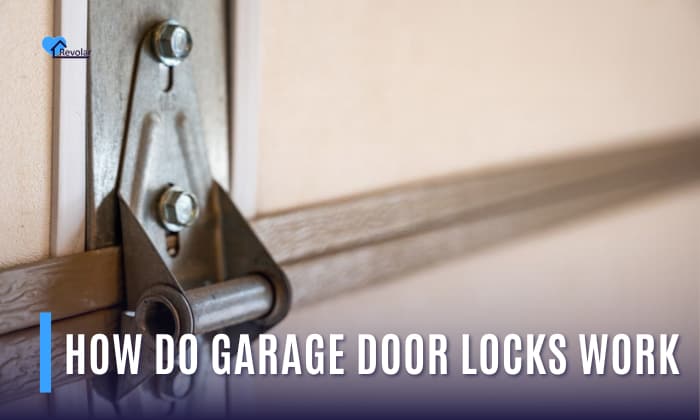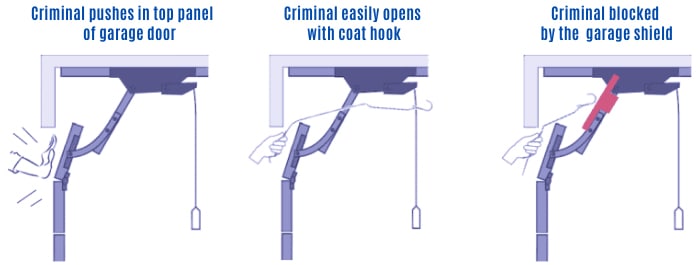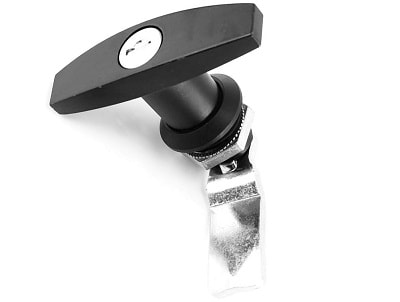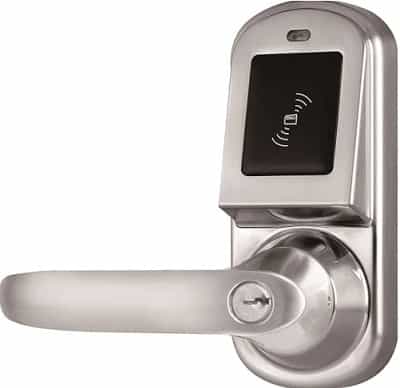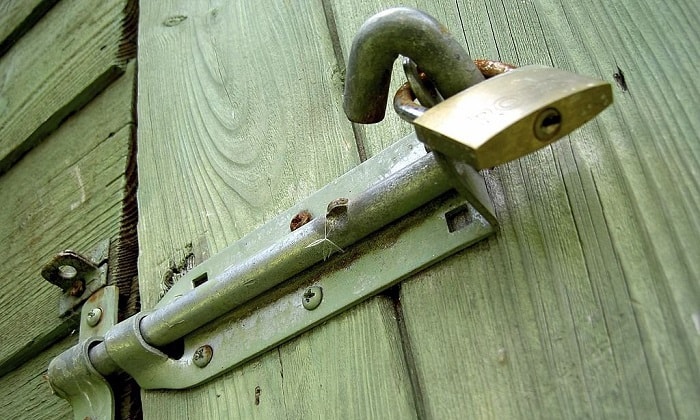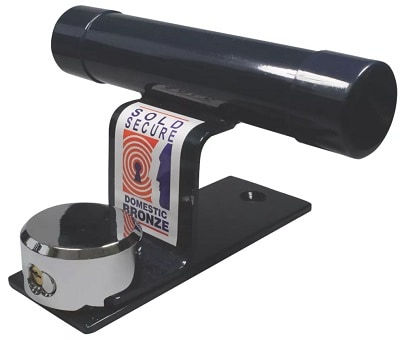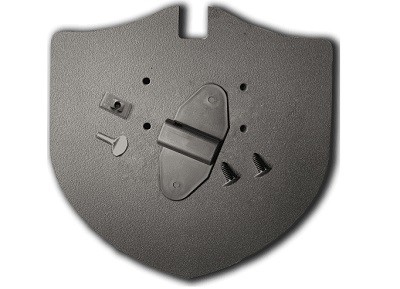Garage door lock mechanisms make it easier for homeowners to open and close their garages. We know how challenging it is to secure a pull-down door, so having a device like this makes all the difference.
When talking about this type of lock, you might be wondering how do garage door locks work. To answer that, we must understand the two types of this lock. There’s a manual garage door lock, and there’s also an electronic lock.
Manual door locks are operated manually, while electronic ones automatically lock the garage doors when closed. If you want to know more about these locking mechanisms for garage doors, we invite you to read the article to find out.
Table of Contents
Different Types of Garage Door Locks
One of the best things about these locks is that there are many garage door lock options. Like the locks we use for our doors, you can take your pick from different garage door locks. Here are some of your options regarding these locks:
1. Standard Locks
Standard locks pertain to the most common locks for garage doors you will see. Devices such as side door bolts and deadbolt locks belong to this category since they are the most common locks for garage doors.
- One advantage of side door bolts is that they are not outside garage door locks, so security is maximized with this device.
- As for deadbolts, their operation can be complicated, so would-be intruders might think twice before breaking in.
2. T-Handle Lock
Aside from offering a comfortable handle, the T-handle lock provides an extra layer of security because of its internal mechanisms. Since security is one of the primary concerns for garage doors, this lock is one of your best options.
Another characteristic that separates this lock from the others is its usage of a cylindrical key. This key is harder to replicate, unlike standard keys, making this lock nearly impenetrable.
These T-handle locks are often used for thick wooden doors that do not use standard locks such as deadbolts.
3. Automatic Locks
Manual locks can get pretty tiring to operate, especially if you’re in a rush. Automatic locks do away with the tedium associated with manual devices by instantly locking the garage door once it closes.
Automatic deadbolts, lock cylinders, and handle locks fall under this category. If you want to use a garage door lock that saves you time and energy and still maintains the same level of security, you can do no wrong with automatic locks.
4. Keyless Locks
If you want a more advanced security system, you can choose to use keyless locks. These locks utilize keypads as their means of unlocking. As long as no one else knows your passcodes, your garage is virtually impossible to get into.
However, this technology also comes at a heftier price, so if you want to use a keyless lock, be prepared for its heavier-than-usual cost.
Pros and Cons of Traditional Garage Door Locks
Traditional garage door locks refer to the ones you commonly see on garage doors, such as deadbolts, side door bolts, and padlocks. Like other devices, these locks have strengths and weaknesses. It is then up to the users to balance these pros and cons.
That said, here are the pros and cons of traditional garage door locks:
1. Pros
Manual garage door locking using these traditional devices is quicker since they are common. We have already encountered locks similar to these garage mechanisms, so operating them doesn’t involve much guesswork.
Additionally, these locks work well as a visual deterrent for would-be intruders. Once these harmful elements see your locks, it is enough to make them think twice about entering. You also have the option for an interior garage door lock or an exterior one, or a combination of the two.
The multiple options at your disposal make traditional locks an easy pick for most users. You can also add their accessibility into the mix since they’re easy to buy from various hardware stores.
2. Cons
One of the main complaints about traditional locks, especially manual ones, is the constant locking and unlocking by hand. If you were to get in or out of your garage, you’d have to unlock the device, open the garage door, close it, and lock it again.
If you are pressed for time, having to go through a tedious process like that isn’t going to cut it. Furthermore, in terms of security, traditional locks are easier to lockpick since they are already common.
Intruders have already studied how standard locks are operated, so it’s easier for them to break in if you have them. The best option in this situation is to use alternatives for garage door locks.
Some Alternatives to Traditional Garage Door Locks
There’s nothing wrong with using traditional garage door locks. However, since getting around these security systems is common knowledge, it’s easy to break into them. Alternatives to your usual locking mechanisms can reinforce security and make it hard for would-be intruders to break in.
Here are some of the best alternatives to traditional garage door locks:
1. Garage Door Defenders
If simple locks don’t work for you, you can try to use garage door defenders. This device is a bar you can place in front of your garage door, preventing would-be intruders from pulling your door up.
If you were to look at the mechanism diagram, the bar is held together by a sturdy base bolted inside the garage and can be unlocked using a key. If you want to crank up the security, you can use this device with the other locks in the previous section.
2. Garage Shield
Automatic garage door locks often employ an overhead door lock mechanism. While this system works well for automating your device and keeping intruders at bay, it has one fatal weakness; the top panel.
Garage Shield prevents intruders from using a coat hanger or something thin to break into your overhead lock. This device provides security by blocking the weak spots on your overhead lock and making it impossible for intruders to exploit the weak part.
Conclusion
From traditional devices that lock garage doors after opening them manually to advanced reinforcements such as garage door defenders and shields, you have many options for home security.
Now you don’t have to ask yourself, “how do garage door locks work?” and just focus on picking the right lock. Knowing each lock’s pros and cons will allow you to reinforce your home’s security and keep would-be intruders at bay.

I am the last member to join Revolar and might be just the luckiest to work with dedicated people like Teddy and John. Our team has established a process where my only job is writing the best content to deliver incredible ideas and guides.


